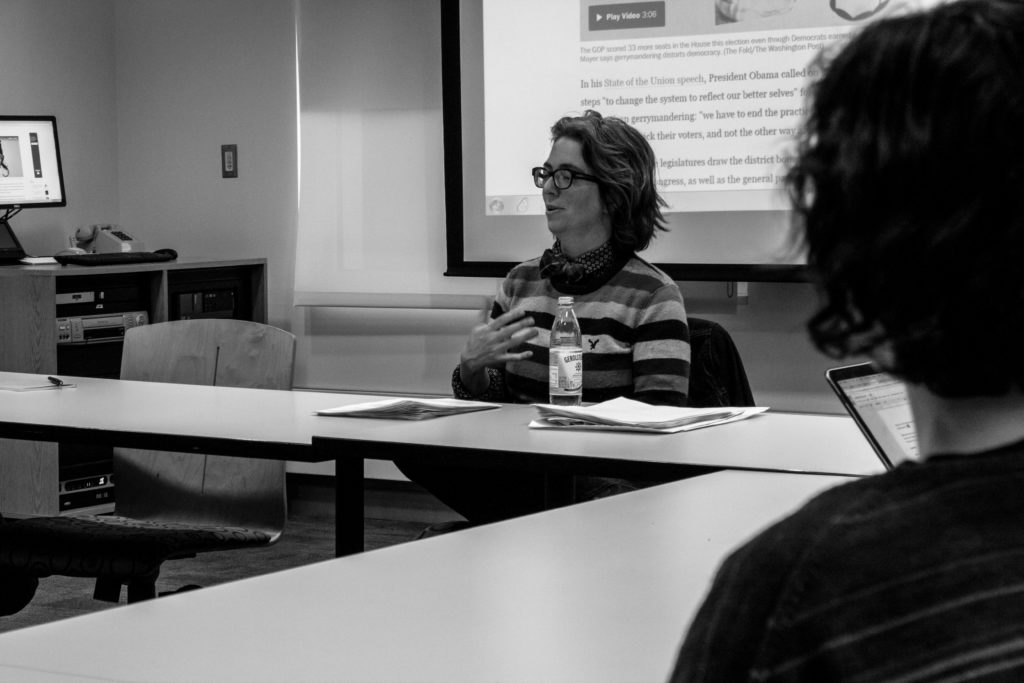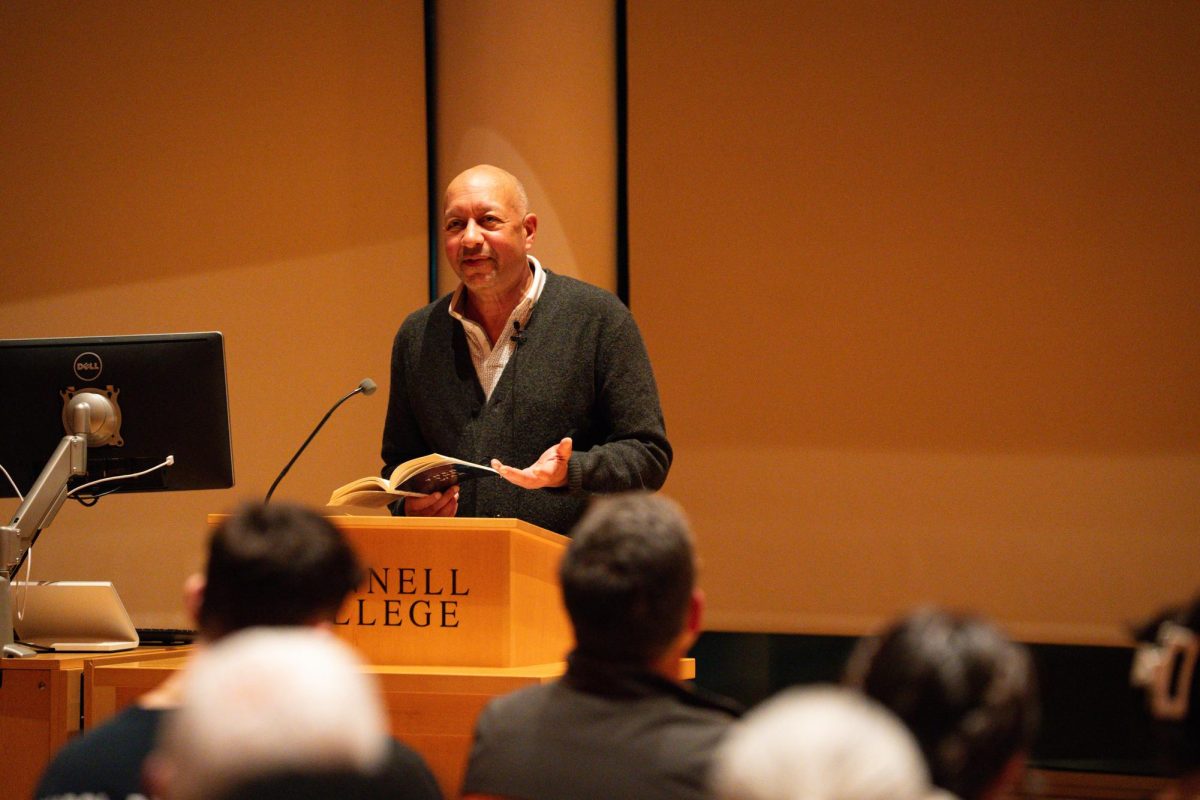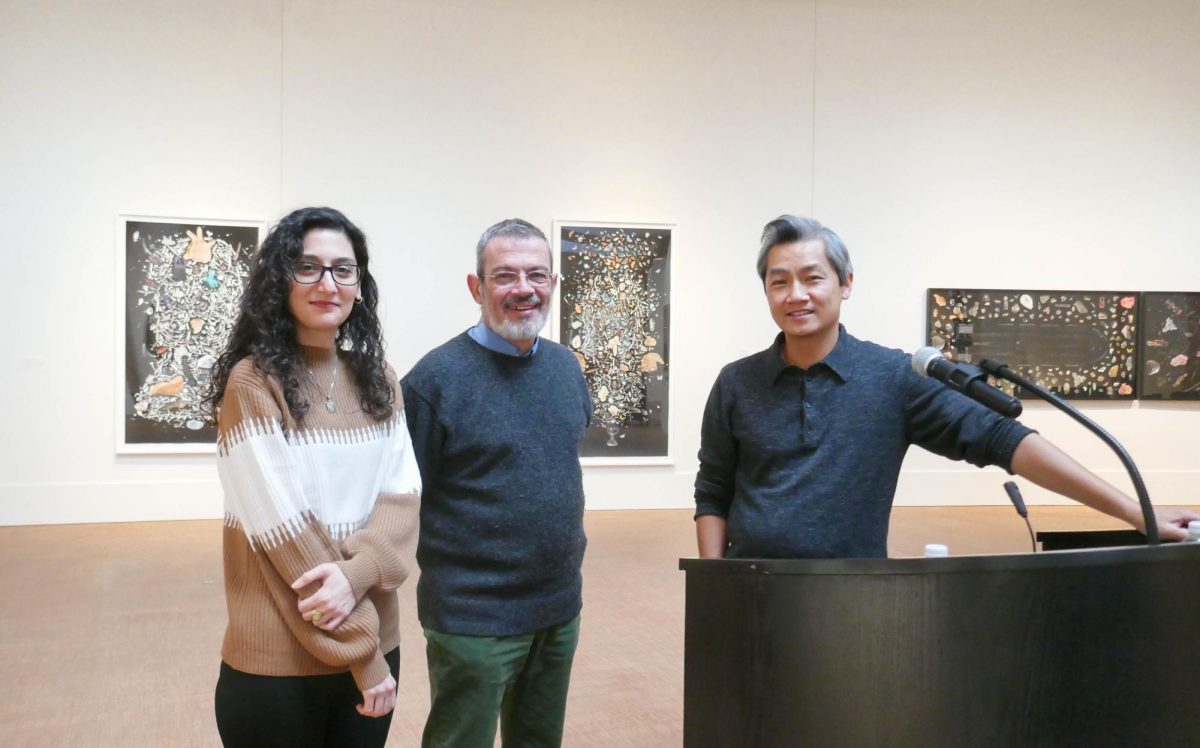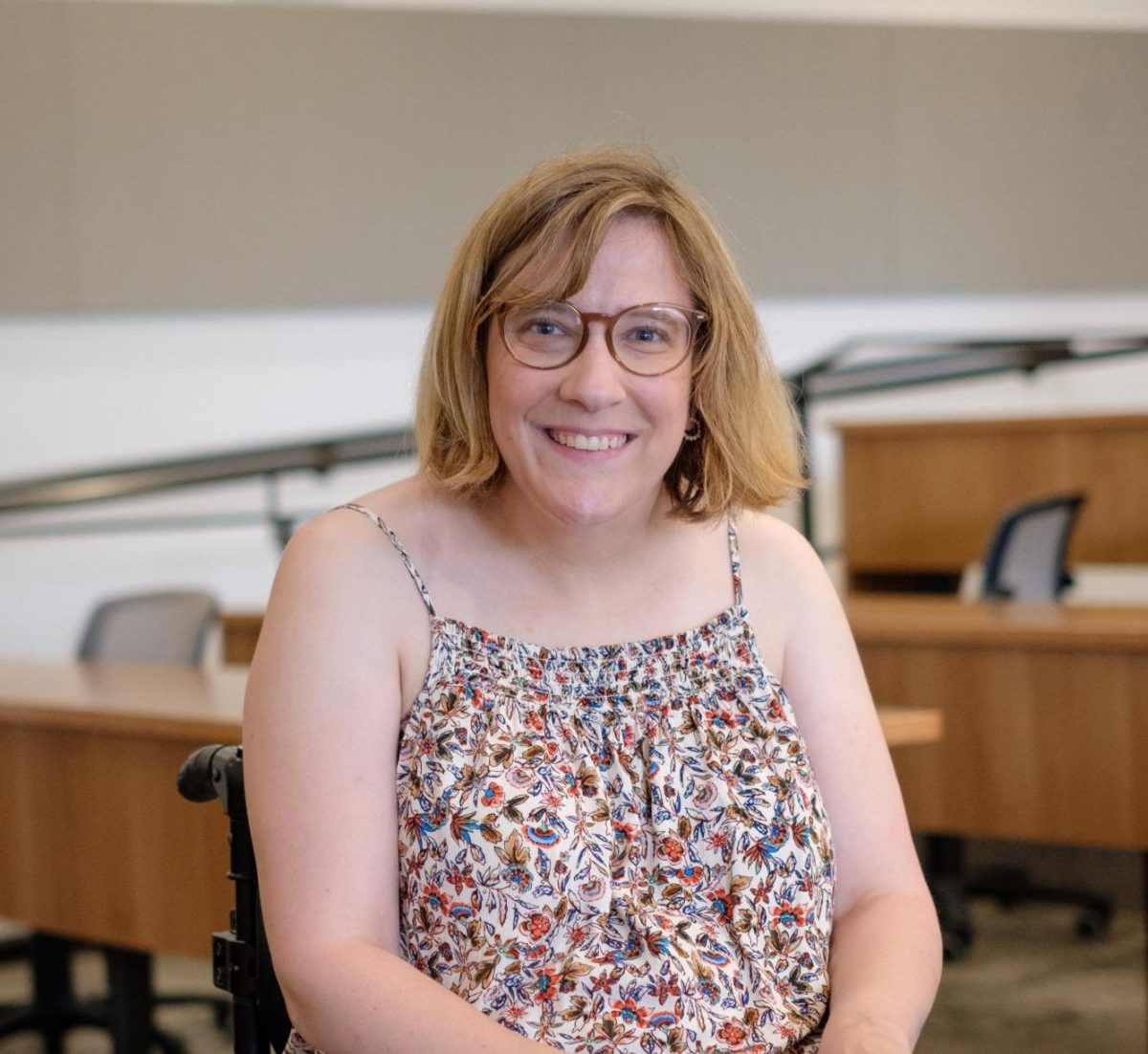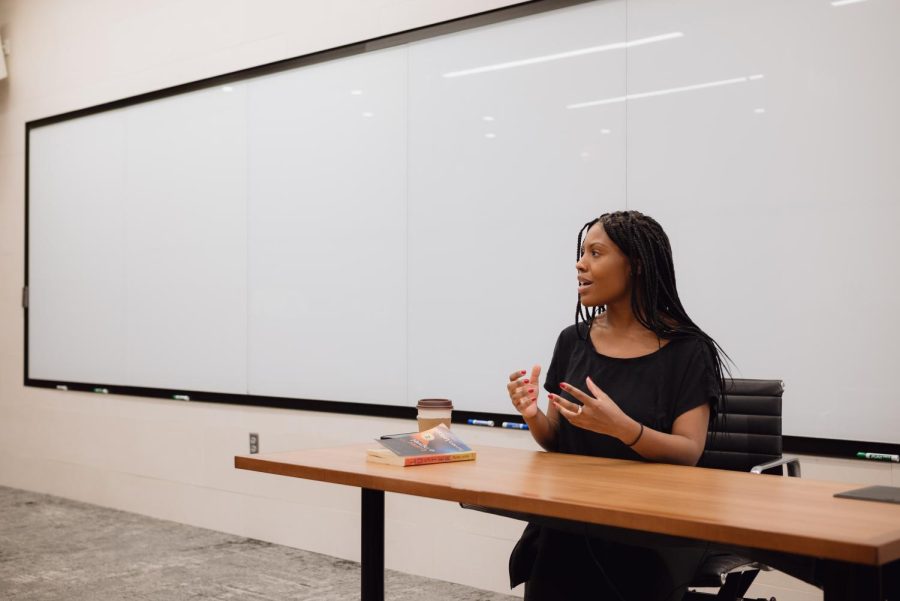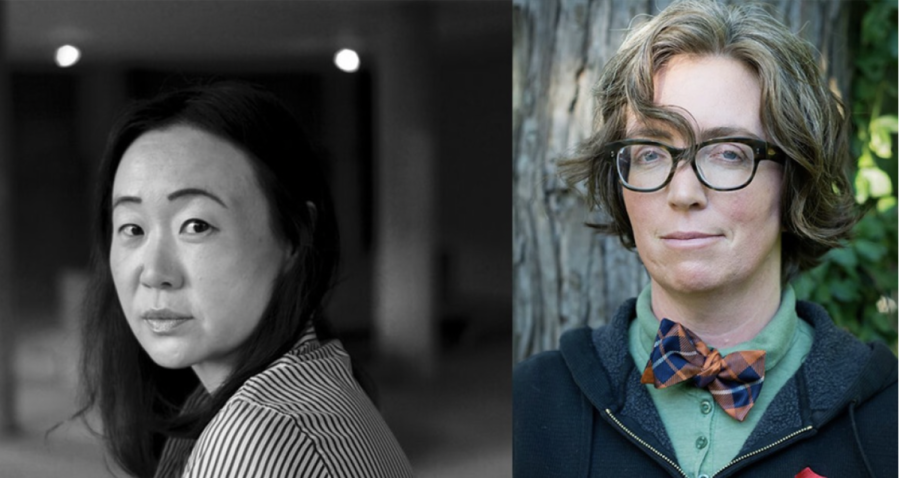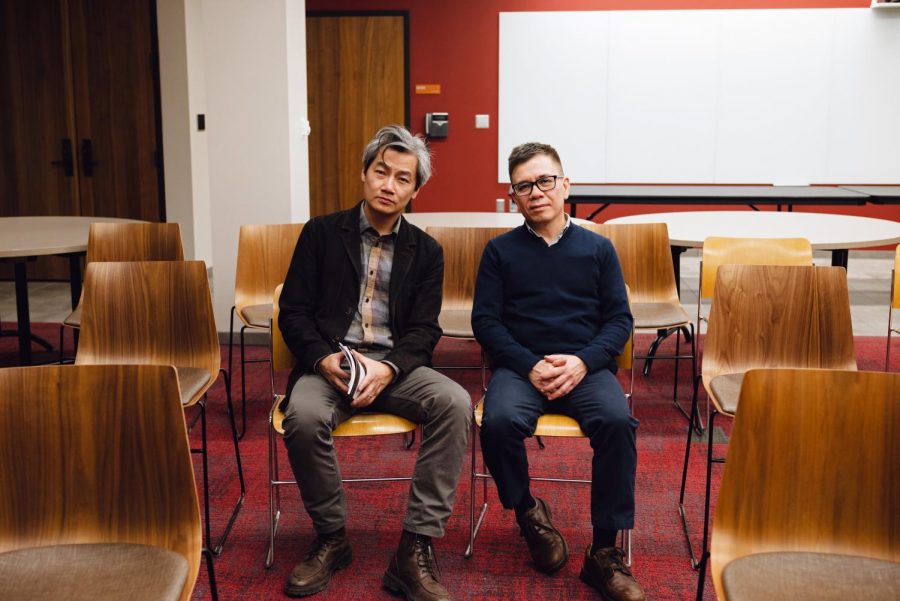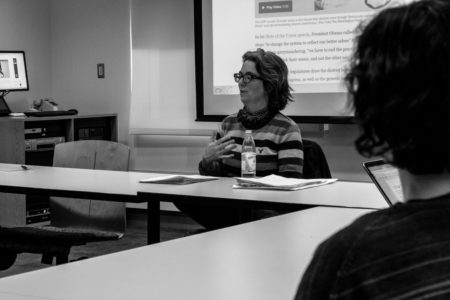
The S&B’s Graham Dodd sat down with Gabrielle Calvocoressi to talk about poetry, process, and personhood.
The S&B: Can you introduce yourself with your name and PGPs?
Gabrielle Calvocoressi: I use she, I don’t know if that’s how I think of myself day to day, but right now that for public life I choose to use. Although in my work I think about that vessel a lot. I’m a poet, I’m a queer lesbian poet writing in America right now.
The S&B: Would you briefly introduce your career as a poet-author?
GC: Sure, I’m someone who started writing fairly early in my life. My mother took her life when I was 13, and I think a lot of kids who are in a position like that, where there is something that has happened, that, to some extent, there is a lot of silence around, I think suicide is a kind of closet, just like queerness, and I certainly lived in that closet. Nobody talked about my mother dying and how she died. So I started writing poems, and I don’t think I knew they were poems, but I started writing things as way of trying to push into that silence. It wasn’t until I got to summer camp and a counselor said to me, “Oh these are poems,” and I thought, “Oh gosh, wow these are poems!” So I would say that is really the beginning of my poetic life. I was someone who was lucky enough to be thinking about poems in high school, and then I went to Sarah Lawrence College, which, like Grinnell, is a rigorous liberal arts school that had a serious focus on writing. After that I followed I guess kind of a traditional path of going to do an MFA in Columbia and then I had a fellowship at Stanford where I wrote. And then I became a bit of a wanderer where I just read and taught in various places and saw a bit more of the country. I lived in Los Angeles for a long time and now I’ve got three books. My next book, “Rocket Fantastic,” is coming out next fall and I’m very excited about it. I’m also nervous and scared, because I talk about gender identity in ways that I’ve never done before. But I think it is time for all of us to be pushing ourselves, to talk about things that are difficult for us to put language to. So, yeah, I teach at the University of North Carolina at Chapel Hill, and I get to do stuff this, so it is a good life in the midst of a challenging time.
The S&B: What is your writing process like?
GC: It changes from book to book in a certain way. I am not someone who writes every day. I say that because I think many writers will say a writer has to write every day. I am not that person. I had a desk job, I didn’t enjoy it, I don’t want my writing to be a desk job either. So writing everyday is not part of my practice, but I would say that doing things like walking everyday for a long period of time, doing things like we did during the round table where I say, “What is something that I saw today that nobody else saw?” I have a pretty serious watercolor practice that I do everyday. Everyday I am trying to make something and I am trying to make sense of something I saw or heard that surprised me in some way. And then, generally, at some point I will feel inside myself like its time to start making a kind of sense of that in terms of making language out of that. And when that point comes then I tend to have pretty intensive periods of writing poems all at once. And then I will have a period of great silence again. Sometimes during that time I will be revising pretty heavily, but one thing I’ve tried to do, as I get older in my life and in my career, is become more comfortable with those periods of silence and not think of them as failures. I think that is something that is important for writers to learn, because if I don’t
think of it as failure, I can actually open my ears and actually hear what that time is trying to tell me. That sounds kind of New Age-y, but I think its true. So I guess a lot of my process is working super hard in lots of different ways and not feeling bad about any of them.
The S&B: Do you ever deviate from poetry, when?
GC: Yeah, I am working on a book of nonfiction right now, which I suppose every poet in America seems to be working on a book of nonfiction right now. But I’m working on a kind of longer nonfiction project thinking about my mother’s suicide more overtly and thinking about a year where I had a panic attack and really kind of came as close as I think I’ve ever come to us being really alike in terms of the outcome of our life. And then I, I don’t like the word healed, I had other options. She was very poor, she was mentally ill, she lived during the Reagan era when mental hospitals were being shut all over this country. I lived in Berkeley California, rosemary bushes were six feet tall and I just had different options and choices. It’s a book that thinks a lot about why, not the question everyone asks me, which is why people kill themselves, but kind of like why doesn’t everyone kill themselves. I think for me it was really because of the littlest things.
The S&B: The last few weeks have been time when many individuals who can reach an audience with their voice feel compelled to do so. Do you feel that same compulsion?
GC: Not to sound like a jerk about it, but I think I always feel that compulsion. I think that activism, physical activism, is a large part of my existence. Do I feel more compelled because of this election? I don’t know that I do. I think that this election is a symptom, or maybe it is a result … I can’t tell yet if it is a result or a symptom of something even bigger that is coming. But if we think of it as a result, it’s a result of a kind of injustice that has been going on for a really long time. So maybe I am speaking more specifically about the election, but I guess for myself I … I’m trying to think about how to be articulate about this … I think that for me the past two or three years of my life, particularly living in the American South, particularly living in the state I live in [North Carolina], which is a state of remarkable activists fighting very hard. I think its been kind of a nonstop thing that I’ve been working on and I would say that what has happened to me, we were talking about process, activism has become a bigger part of my poetic process. Trying to, for instance, if I come to a school to read, very often, find another space where I can do work with the community, and things like that. I feel upset in a different way than I felt three weeks ago, but I have felt desperate for a long time.
The S&B: Any advice for Grinnellian poets trying to find their own role in society?
GC: I think it is a very difficult time to be a young poet in a lot of ways. On the one hand, it is a remarkable time for our voices being heard, and I think social media really allows for that. I also think that capitalism and neoliberalism seeps into every part of life now in America. It certainly seeps into the poetic life. I would, and I sound like a dinosaur saying this, but I would just say that, particularly for young poets that think of themselves as activists, think about the difference between putting yourself out in the world as an artistic individual and doing something that may sound like that but is actually closer to selling yourself as a product or a brand in the hopes of doing something like getting a book. There is a tremendous pressure now even on undergrad poets to have a book very quickly, and I think that is awesome and I think that is a kind of pressure that is being put on poets by things like publishing houses. So I think it’s a moment where we have to be very careful as artists but particularly as young artists to really be in control of our voice and to really be able to have an agency over where our voice goes, how it goes places and retain ownership over ourselves. I was really struck when I was driven from the airport when we went by those Facebook bunkers. The big Facebook campus? When you drive to Des Moines, you’re going to see on your right hand side these huge concrete bunkers, just enormous bunkers. They look like defense buildings. They would think they were nuclear armament buildings. But I was told that it’s the Facebook campus, and that’s where a lot of their data is. And there is big wire fences being put up around them. It doesn’t look at all like the friendly blue logo. It is worth driving past that place and looking at what that looks like and realizing that is the place that is sending our work all over the world and making us feel heard. What I would say to poets is to take their drive and think about where you want your voice to be.


















































